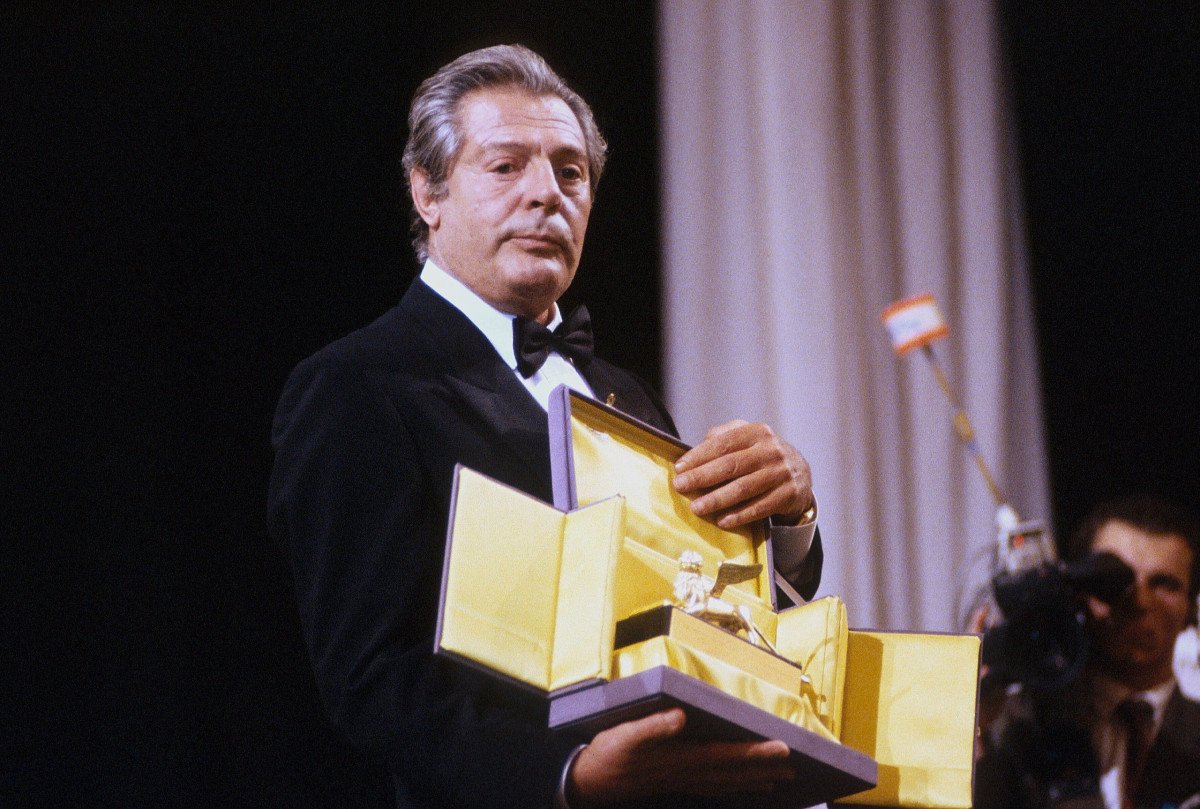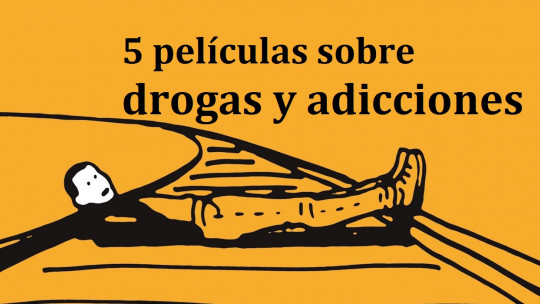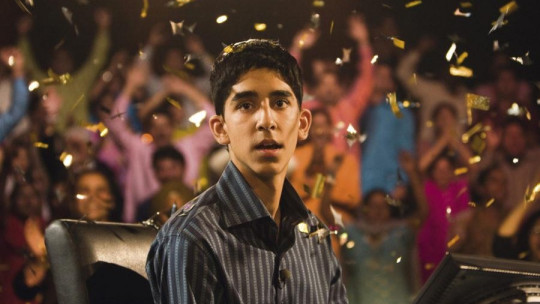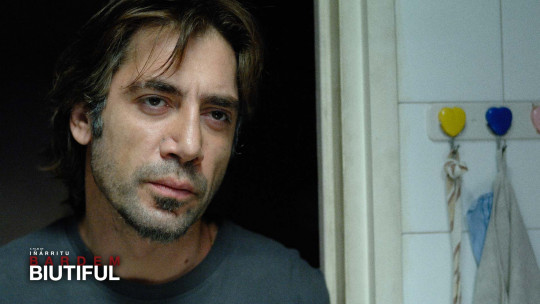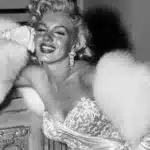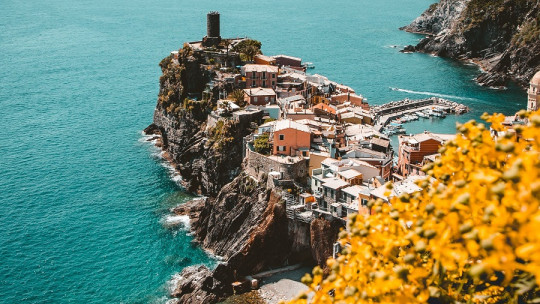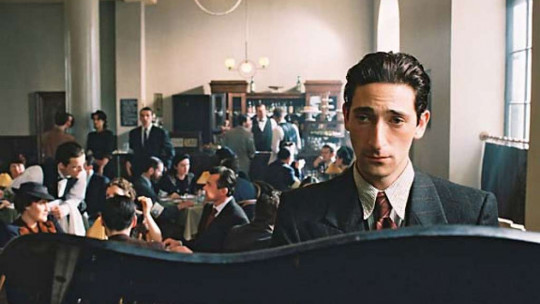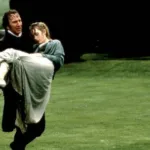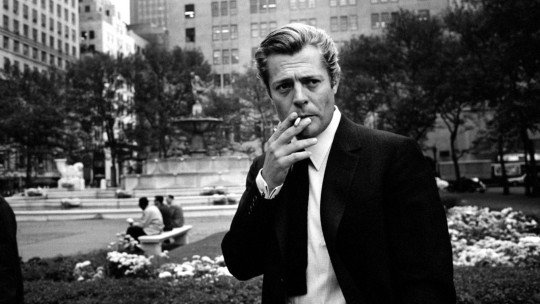
There is no doubt that Marcello Mastroianni is one of the great stars of the screen. And not only from his native country, Italy, but from international cinema. This celluloid monster has no less than 160 films to his credit, in which he plays a very varied gallery of characters.ranging from the comic roles that made him famous in the 1950s to the dramatic roles with which he established himself as an actor.
And there are few actors as versatile as Mastroianni. Unfairly considered a Latin lover (he always abjured this nickname, which horrified him), the Italian actor has one of the most interesting careers in the history of cinema that has often been undervalued. Today, taking advantage of the fact that this month of September marks 100 years since his birth, we review the life and cinematographic career of the iconic protagonist of La Dolce Vita, Marcello Mastroianni.
Brief biography of Marcello Mastroianni, the great Italian actor who starred in La Dolce Vita
As usually happens, there were two characters behind the name. One, the Marcello Mastroianni of celluloid, the one who was called a Latin lover after the blockbuster of La Dolce Vita by Federico Fellini (released in 1960); and another, the authentic Marcello, a rather shy and sensitive man who always hated the nickname that had been imposed on him.
This month of September 2024 marks one century since its arrival into the world, in a small and modest town in Italian Lazio. Despite not having enjoyed a very long life (he died at the age of 72, in 1996), Marcello Mastroianni left behind an impeccable acting career that has often been somewhat underrated. Let us now review his career as an artist and as a man.
A very modest childhood
Marcello Vincenzo Domenico Mastroianni was born on September 26, 1924 in a small town in Italian Lazio, Fontana Liri. He was registered two days later in the civil registry, which is why his biographies often cite the 28th as his birth date.
In any case, little Marcello came into the world in a very modest family, made up of a furniture restorer and a typist. The poverty of his family was notable, and Marcello recalled in an interview that he slept in the same bed as his mother until the advanced age of 27. Even so, in his memoirs (see bibliography) the actor remembers his childhood with extreme affection.
When Marcello was still very young, the family moved to Turin and, later, to Rome. In those childhood years, Marcello enjoyed the films that came from Hollywood, and admired great leading men like Gary Cooper or Clark Gable. However, it seems that his “first love” was architecture (his first job was in an architect’s office), an art that would fascinate him throughout his life.
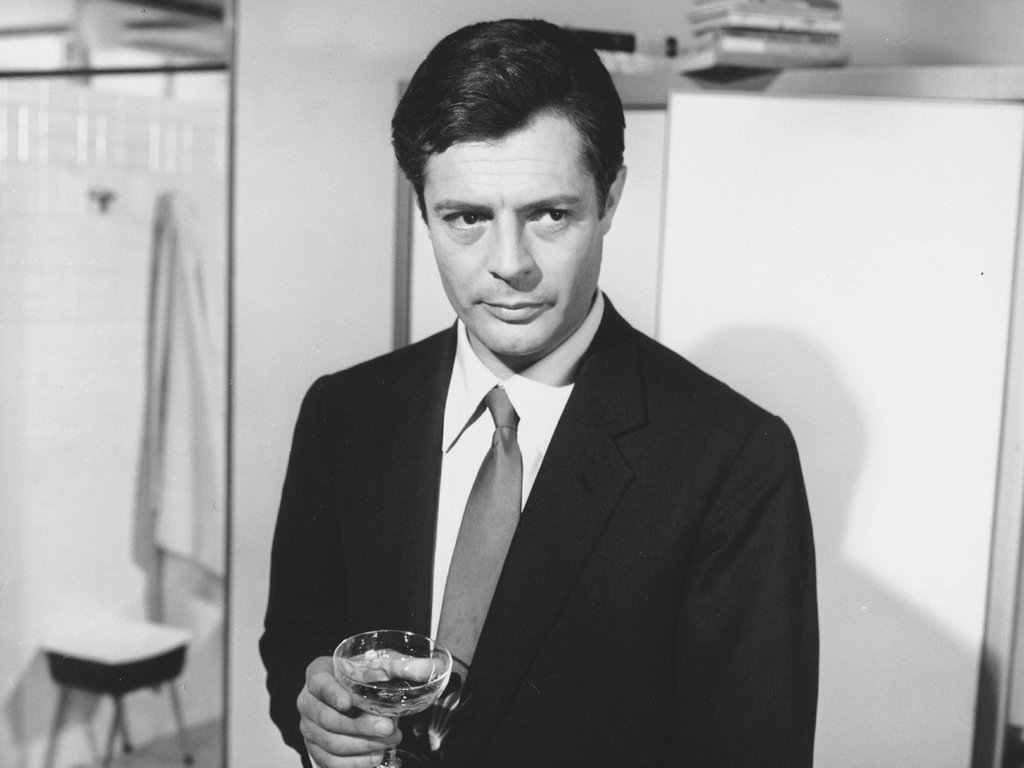
Acting is like playing
Marcello Mastroianni did not conceive the job of an actor as something complicated. For him, it was more like childhood games, in which each child spontaneously played a role. This was stated in his famous interview Yes, I Remember, the great testament of his life’s adventures, which was later published in book format and which constitutes one of the most valuable documents for understanding the figure of the actor.
No, for Mastroianni it did not make sense what some actors asserted, that they “retired to a monastery” to “meditate” on their role. For him everything was fluid, automatic; He became the character with extraordinary naturalness and, perhaps that is why his performances are so convincing.
Acting was like a game for him, and, in fact, that’s how it all started. He went with his mother to act as an extra in some of the films that, in the 1930s and 1940s, were made in Italy, sheltered from the newborn Italian Neorealism, which tried to capture post-war Italian society. Perhaps, in those years, the very young Marcello had not seriously considered being an actor. However, his innate talent was too evident.
The making of a (great) actor
The first film in which he “officially” appeared was Marionette, from 1939, when he was only fifteen years old. She gradually participated in several films, mostly comedies, which, once the war was over and the post-war agony over, began to gain ground over Neorealism. People wanted to forget, not to see her own misery reflected on the screen.
His first great success was White Nights, from 1957, a film version of the short novel of the same title by the Russian writer Fédor Dostoevsky (1821-1881). The action moves from Saint Petersburg to Italy, but the essence of the story is the same: two lonely and hopeless young people who meet one night and decide to alleviate their loneliness with dialogue and company.
Marcello plays Mario, the lonely young man, with a strength and restraint that truly provokes emotion in the viewer. It is a sober performance and, at the same time, extraordinarily eloquent, in which the same simplicity is the passport to absolute credibility of the character, who is not at all strident or exaggerated (as it could have been, given the romanticism what the script entails). With his co-star, María Schell (1926-2005), the Italian actor builds a magnificent tandem that splendidly supports a film in which hardly any other characters appear.
Meeting with Fellini and passport to success
But it will be in 1960 when Marcello Mastroianni’s career will change forever. That year he participated in the iconic La Dolce Vita, by Federico Fellini, an authentic masterpiece of cinema that represented his passport to success. The anecdote of how Fellini offered him the script is so curious that it is worth telling. When Marcello received the script, all the pages were blank; all, except one, in which a drawing appeared (by Fellini himself) where you could see a man swimming in the sea, with a huge erect penis around which some mermaids were having fun…
The truth is that the drawing, beyond the joke, perfectly concentrates the essence of the film, which revolves around a journalist, Marcello (curiously, the character has the same name as the actor) who moves through a Rome frivolous and meaningless that, after the disaster of war, tries to find a coherent direction. The Marcello of fiction is thus involved in a spiral of sex, partying and alcohol, while he wastes the greatest gift he possesses: that of writing.
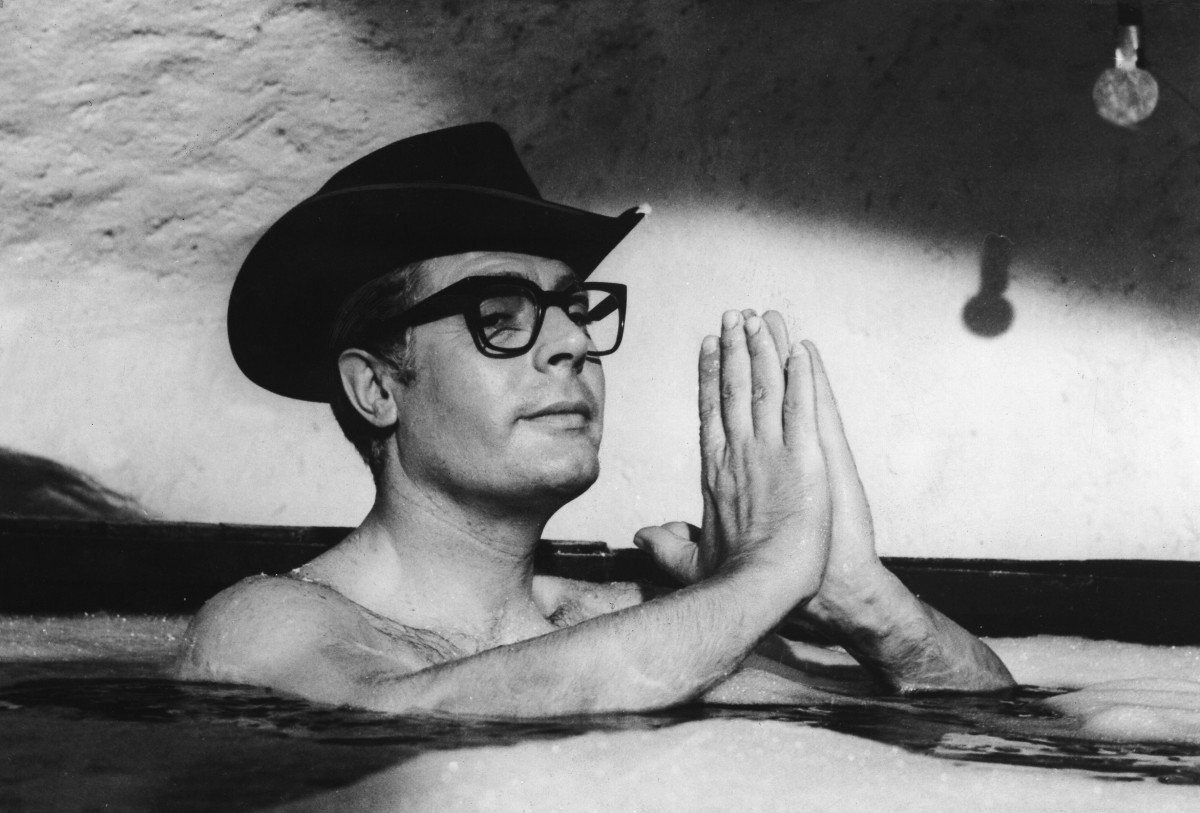
“Latin lover, what…?”
Despite the great success of La Dolce Vita (and, later, 8 ½, also by Fellini, which was, according to Marcello himself, the best film of his career), the film marked the beginning of a fame that Mastroianni detested. always: that of the conqueror, that seductive and rogue “Italian macho” with whom he never identified.
In fact, in the aforementioned interview Yes, I remember… an indignant Marcello Mastroianni laments that he is called a Latin lover, when, in reality, he had played roles that have nothing to do with the typical “alpha male.” Indeed, if we review his cinematographic career, we find, among others, an impotent man who cannot satisfy his wife (Il bell’Antonio, 1960), a cuckolded husband in the hilarious comedy Italian Divorce (1961), and a homosexual retaliated during fascism in the excellent Una giornata particolare (1977). Thus, dismayed and half-resigned, Mastroianni exclaims in the interview: “Latin lover, what…?”
The truth is that, beyond his interpretations, Marcello Mastroianni had a personality very different from what he was attributed to. It is true that he enjoyed numerous love relationships (despite being married to Flora Carabella since 1950 and with whom he had Barbara, who died in 2018), but, far from being a mere entertainment or a way of life, the actor always sought the security of a solid bond. His most famous relationship was with actress Catherine Deneuve, with whom he had a daughter, Chiara Mastroianni (b. 1972), and with whom he appeared in several films.
The perfect tandem
But the woman with whom Mastroianni relates most is his eternal cinematic partner, the exceptional Sophia Loren (b. 1934). Their first film together was Peccato che sia una canaglia (1954), a fun comedy that would be followed by La bella mugnaia (1955) and La fortune di essere donna (1956), films that would consecrate the Mastroianni-Loren tandem, which would appear together in a total of eight films.
The chemistry between both actors is evident on screen, and this is one of the secrets that makes their films so convincing. Despite being only very good friends, both had to endure constant questions from the press throughout their lives, determined to see a romantic bond in their relationship.
Ieri, oggi, domani (1963) is undoubtedly one of the duo’s best comedies (along with the famous Italian Marriage), in which Sophia takes the lead and shows off her talent playing three completely different characters: a Neapolitan woman who sells tobacco illegally, a rich young woman from Milan and a Roman prostitute who makes a promise of abstinence to help a seminarian. The result is three hilarious stories, in which Mastroianni is also absolutely perfect.
The couple also participated in dramas, such as the emotional I girasoli (1970) and the no less impressive Una giornata particolare (1977), in which both are at the zenith of their artistic talent. Especially in the latter, Marcello gives a splendid performance, in which he plays a homosexual man retaliated by the fascist regime. Loren is her neighbor, a frustrated housewife who discovers in her neighbor an unexpected confidant and friend.
“Yes, I remember…”
Although the 1960s and 1970s represent the culmination of Mastroianni’s artistic career, the 1980s marked a certain decline that, even so, has more than notable titles, such as Ginger and Fred (1986), again under the direction by Fellini, and Black Eyes (1987), by Nikita Mikhalkov.
His last film, Voyage to the beginning of the world, was released posthumously in 1997. Mastroianni had died in December of the previous year, a victim of cancer that he had been suffering from for a long time. In the film, Marcello plays Manoel, an elderly director who nostalgically remembers life, which could not be more appropriate to close a career.
That same year, 1997, another Mastroianni film was released, his great life testament: Yes, I remember, a very extensive interview conducted by his last partner, Anna María Tató (later published in book format) in which the great actor Italian is slowly remembering his entire career as an artist and as a human being. One of the last scenes shows the Voyage to the Beginning of the World film crew offering him a cake for his 72nd birthday. Death would surprise him just two months later.
